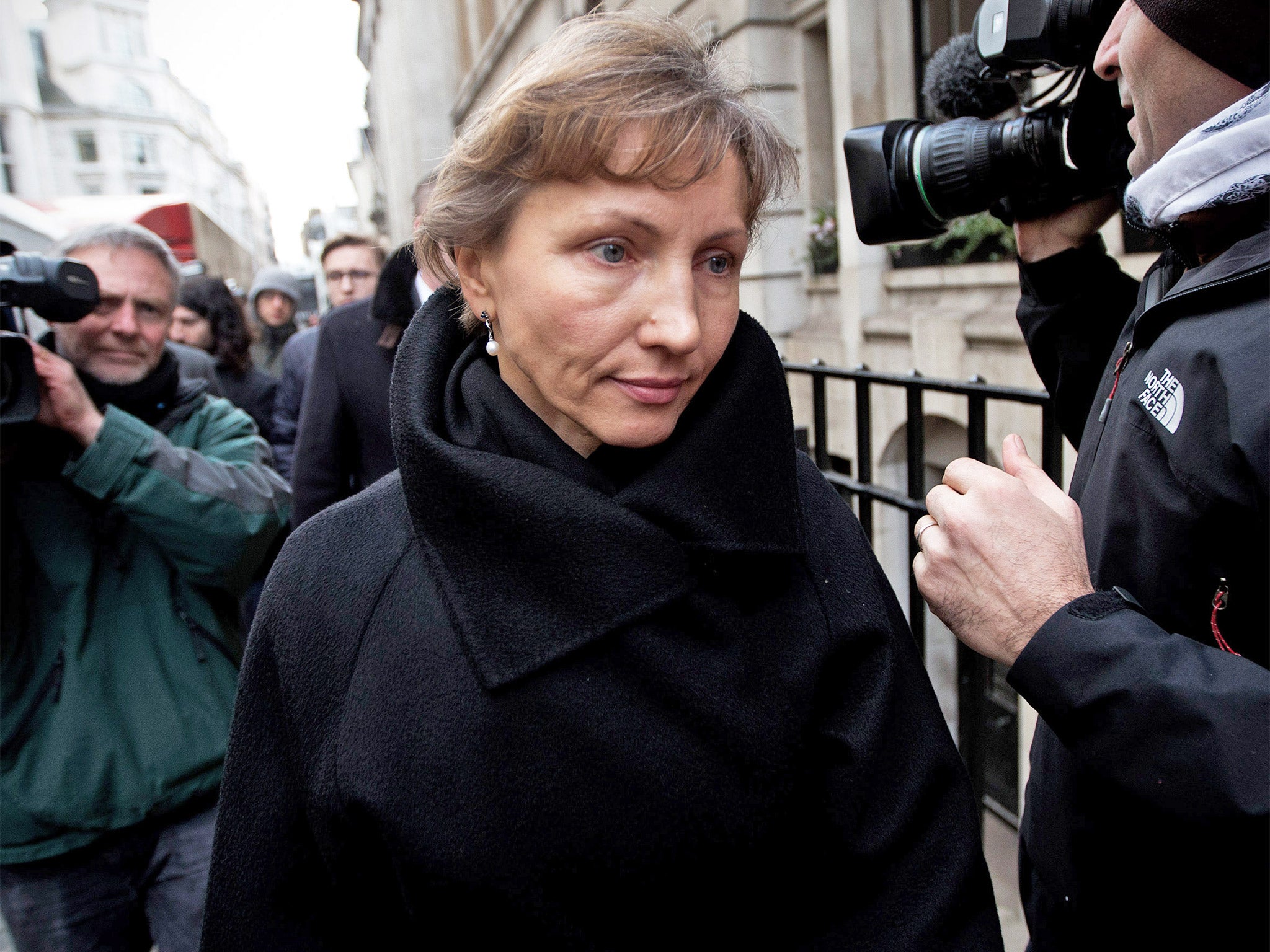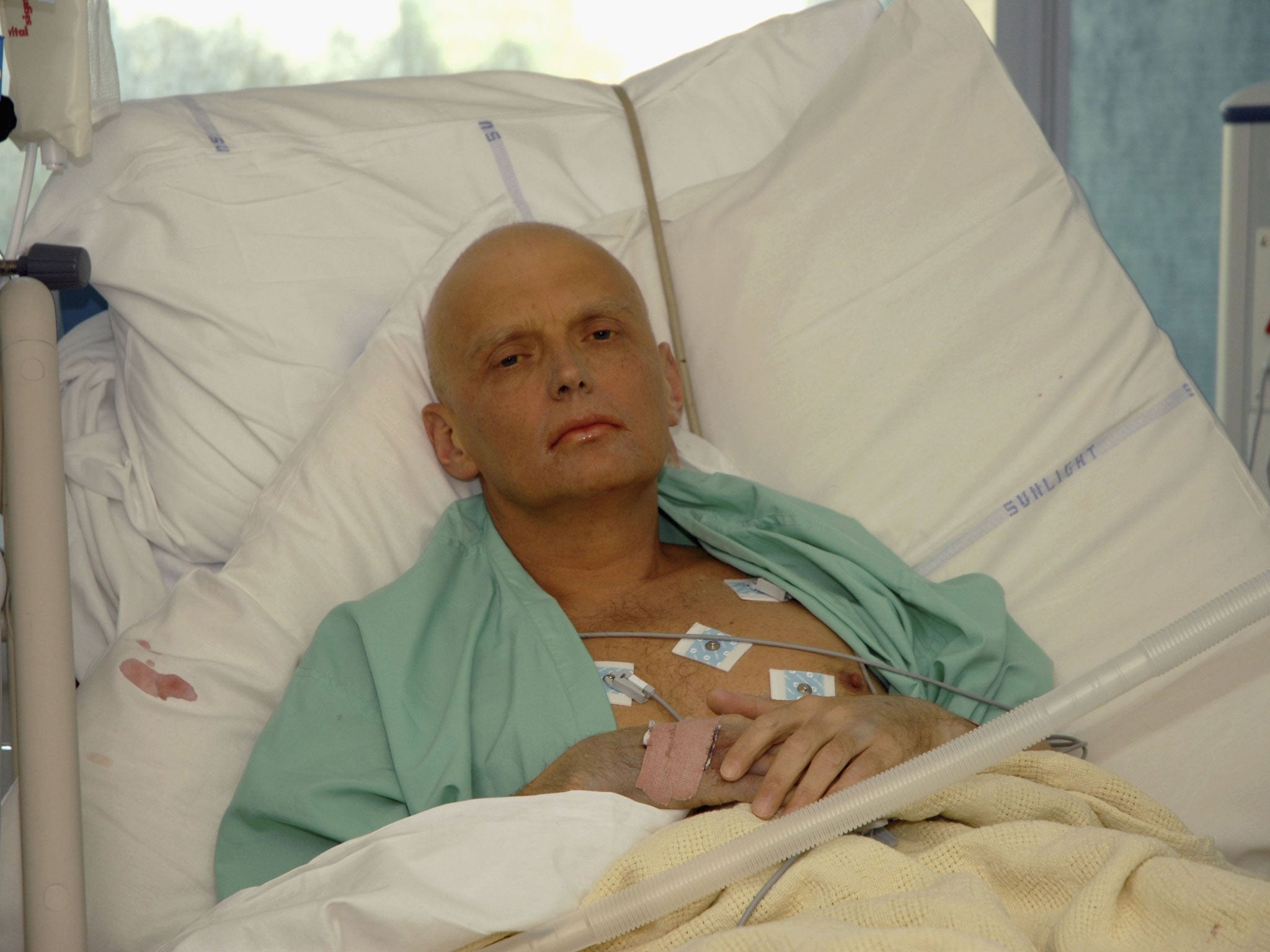Laying the blame for Litvinenko’s death at Putin’s door is an orthodoxy that needs challenging
There is far more to this saga, and it is already emerging from the inquiry


Your support helps us to tell the story
From reproductive rights to climate change to Big Tech, The Independent is on the ground when the story is developing. Whether it's investigating the financials of Elon Musk's pro-Trump PAC or producing our latest documentary, 'The A Word', which shines a light on the American women fighting for reproductive rights, we know how important it is to parse out the facts from the messaging.
At such a critical moment in US history, we need reporters on the ground. Your donation allows us to keep sending journalists to speak to both sides of the story.
The Independent is trusted by Americans across the entire political spectrum. And unlike many other quality news outlets, we choose not to lock Americans out of our reporting and analysis with paywalls. We believe quality journalism should be available to everyone, paid for by those who can afford it.
Your support makes all the difference.When the public inquiry into the death of Alexander Litvinenko opened at the Royal Courts of Justice in London this week, the very fact that such an inquiry was happening at all constituted an almost unimaginable victory for his widow, Marina, and a vindication of her admirable, if perhaps naïve, faith in the quality of British justice. In her place, I might have succumbed to cynicism long ago, but she never lost confidence that, in her adopted homeland, justice would be done.
What that victory has cost her is written on her face – just look at the telling picture on The Independent’s front page on Wednesday. It is more than eight years since her husband, a fugitive from the Russian intelligence services, died a tormented death from radiation poisoning at University College Hospital; In three weeks, he had gone from being a reasonably healthy 43-year-old to a bald wraith, whose body was so contaminated that it had to be buried in a lead coffin. Thanks to his friends, we have the photographs to prove it. What we don’t know, and what the inquiry is supposed to find out, is how and why.
You do not need the benefit of hindsight, I think, to regard the eight-year delay and the reluctance of two governments to authorise an inquiry rather than an inquest - a reluctance they defended through the courts – as a national scandal. On the opening day, the presiding judge, Sir Robert Owen, set the tone, saying that the issues to which Litvinenko’s death gave rise were “of the utmost gravity and international concern”. All the legal counsel subsequently used similar terms to describe what happened as a “miniature nuclear attack on the streets of London”. If such a death did not warrant a public inquiry in the eyes of government, it is hard to imagine what would.
The eight years of delay and legal wrangling, however, have allowed a version of events to coalesce that has been widely accepted around the world (with no discouragement whatsoever from the British authorities). It was introduced with characteristic verve and bite by Marina Litvinenko’s counsel, Ben Emmerson, on Tuesday, when he spoke of a “political assassination, authorised at the very top of what he called the “mafia state” that was, and is, Putin’s Russia. According to this, Litvinenko was murdered because he had made an enemy of the service he had once belonged to and its erstwhile head, who became Russia’s president.
There are those - and I am one – who suspect that even if there is truth in this version, it may not be the whole truth, and we have become used to being dismissed as deluded and/or apologists for Vladimir Putin. Yet some of what has emerged in just the past few days suggests, at very least, that there is more to the Litvinenko saga than has so far seen the light of day.
Last weekend, for instance, it was reported that US intelligence, in the shape of the NSA (think Edward Snowden), had intercepted communications of the two Russian suspects, Andrei Lugovoi and Dmitry Kovtun (who both deny any involvement), and that it was these findings that had clinched the case against Russia. It is not clear whether any of this information will be heard at the inquiry, either in public, or at all. But the claim raises interesting further questions about when the eavesdropping took place, what country the two suspects were in at the time (remember the all too brief discussion, post-Snowden, about the legality of US and UK intercepts) , and what exactly was recorded – the fact of the Russians’ communications or their actual contents.
It has also emerged that British intelligence was “on the case” quite early. We knew that Litvinenko was interviewed by the police as he lay gravely ill in hospital – an unusual, possibly unique, instance, the inquiry was told, of a victim giving evidence about his own murder. But it was also reported, a couple of days before, and almost in passing, that Litvinenko was also visited in hospital by a UK intelligence officer. Is this true, and why?

Mystery still surrounds the actual poisoning. Counsel for the inquiry, Robin Tam, suggested that two attempts were made to kill Litvinenko with Polonium-210; a newspaper report on the eve of the inquiry suggested there had been three. At the heart of the multiple poisoning theories, however, is the need to explain why Litvinenko appeared to be leaving traces of radioactivity several hours, and possibly days, before he drank the notorious tea at the Millennium Hotel’s Pine Bar. The sequence of events has to be cleared up.
The inquiry has also presented the outline of a strange and seductive story about Dmitry Kovtun on a trip to Hamburg in the month before the poisoning. According to Robin Tam, he asked a long-time friend and restaurant worker whether he knew a cook in London who might be able to administer some “very expensive poison”. (Answer: yes.) This is a completely new claim. But is it correct, or might it have been confected?
One of the central arguments for the original assumption of Russian state complicity, however, has been quietly scotched. Do you remember how it was said early on that the polonium had to come from Russia and from a particular laboratory? This, it appears, was so much nonsense. On the opening day, the inquiry was told that this could neither be proved, nor assumed. Russia did manufacture most of the world’s polonium -210, but much of it was exported and there is apparently no global register of who has polonium and where it comes from. (So much for the International Atomic Energy Agency.) The origins of the polonium in this case could not be traced, and this was not an avenue the inquiry would pursue.
All that can be divined from this is that the Litvinenko saga is nowhere near as straightforward as it might once have appeared. In his opening remarks, Owen repeated his promise to be “fearless” in pursuit of the truth. The test of this inquiry will be not whether it proves that “Russia did it”, but whether it can convince sceptics such as myself that the evidence points incontrovertibly in that direction. Or, in the event that the conclusion is different – and Sir Robert has insisted that even the most cherished theories will be challenged – that this different conclusion is accepted by those long convinced of Russia’s guilt.
Eight years is a long time. The political assassination theory is deeply ingrained and supported by layers of Cold War suspicion. The one consolation, perhaps, which is hardly a consolation at all, is that relations between Russia and almost everyone else in the Western world are now so bad, because of Ukraine, that even the most damning conclusion is unlikely to make them much worse.
Join our commenting forum
Join thought-provoking conversations, follow other Independent readers and see their replies
Comments